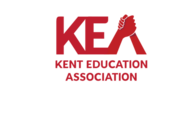Make the Most of Your KEA Membership!
WEA Professional Learning Available 
Register for WEA TPEP professional learning. Courses are available to WEA members statewide unless a specific local or council is noted. All courses on student growth goals focus on the newly revised student growth goal rubrics. 
In 2023-24, both the previous and the new student growth goal rubrics are available. Consult with your local association and district to determine which you will be using. Beginning 2024-25, all teachers in Washington state will be using the new rubrics.
For questions on registration or clock hours for TPEP courses, please contact Sheila Beaver.
Developing TPEP Student Growth Goals with the New Rubrics
Learn about the changes to TPEP Student Growth Goals. Examine the shifts, including an increased focus on educator reflection, and using students' assets in developing goals. Learn more about the role that student growth plays in a TPEP evaluation. You will have the opportunity to explore tools and resources for your own student growth goal-setting process.
- Wednesday, September 20, 2023. 4:30-7:30. Zoom. Developing TPEP Student Growth Goals with the New Rubrics. 3 clock hours. Register.
- Tuesday, October 10, 2023. 4:30-7:30. Zoom. Developing TPEP Student Growth Goals with the New Rubrics. 3 clock hours. Register.
- Thursday, November 2, 2023. 4:30-7:30. Zoom. Developing TPEP Student Growth Goals with the New Rubrics. 3 clock hours. Register.
- Tuesday, December 5, 2023. 4:30-7:30. Zoom. Developing TPEP Student Growth Goals with the New Rubrics. 3 clock hours. Register.
- Monday, January 22, 2024. 4:30-7:30. Zoom. Developing TPEP Student Growth Goals with the New Rubrics. 3 clock hours. Register.
- Thursday, February 8, 2024. 4:30-7:30. Zoom. Developing TPEP Student Growth Goals with the New Rubrics. 3 clock hours. Register.
- Wednesday, March 6, 2024. 4:30-7:30. Zoom. Developing TPEP Student Growth Goals with the New Rubrics. 3 clock hours. Register.
- Tuesday, April 16, 2024. 4:30-7:30. Zoom. Developing TPEP Student Growth Goals with the New Rubrics. 3 clock hours. Register.
- Thursday, May 30, 2024. 4:30-7:30. Zoom. Developing TPEP Student Growth Goals with the New Rubrics. 3 clock hours. Register.
TPEP 101: Artifacts and Evidence
Explore the major components of the TPEP evaluation process and learn about updates which enhance professional growth and improve student learning. Areas of emphasis include state criteria, comprehensive and focused evaluations, and scoring methodologies. Demystify collecting and providing evidence. Get tips to harvest evidence to best represent your instruction, and authentically align evidence to your framework. 2 clock hours.
- Thursday, October 12, 2023. 4:30-6:30. Zoom. TPEP 101: Artifacts and Evidence. 2 clock hours. Register.
- Wednesday, November 8, 2023. 4:30-6:30. Zoom. TPEP 101: Artifacts and Evidence. 2 clock hours. Register.
For more information or to schedule a training
Please contact Maren Johnson for questions or inquiries on TPEP policy and practice, or if you would like to schedule a training.
Asychronous Courses
Coming soon.
Our TPEP mission statement 
The over-arching objective of teacher evaluation is to ensure that an authentic process contributes to the improvement and enhancement of teacher practice resulting in improved student learning. Good evaluation provides both formative and summative feedback and the feedback is used primarily for growth. Improving the efficiency and quality of schooling depends, in large measure, on ensuring that teachers are highly skilled, well resourced and well supported. 
TPEP should reflect educator values and practice
WEA members believe our evaluation system should:
- Hold teachers and principals accountable to high standards
- Have the faith, confidence and support of the teachers who are being evaluated
- Measure student growth over time by using multiple measures determined locally
- Use reliable, valid assessments to measure student growth in ways that help both teachers and students
- Provide school districts flexibility to meet student and teacher needs
- Provide the support, feedback and resources teachers need to strengthen their teaching
- Encourage and value collaboration among teachers, administrators, and their local communities 
- Emphasize the success of students and teachers rather than focusing on deficits
- Exist within a K-12 school system that is fully funded by the state as required by the state Constitution and the Supreme Court’s McCleary decision
How WEA is involved with TPEP
WEA has been involved in TPEP from the very beginning and remains involved in the development, refinement, and implementation of TPEP:
- State Steering Committee: The WEA participates collaboratively with AWSP, WASA, WSSDA, PTSA, and OSPI on the state steering committee and continues to positively refine the evaluation system.
- Legislation: The WEA influenced the crafting of new legislation (SB 6696; SB 5895, HB 1139), including changes to teacher and principal evaluation. Elements related to evaluation criteria, differentiated four tier rating scales and the architecture and frequency around focused and comprehensive teacher evaluation were some of the enhancements. The WEA has been instrumental in keeping out mandated use of state-wide assessment data to determine teacher quality.    
- Professional Learning and support to local associations: The WEA helps locals across the state construct effective evaluation systems for districts and provides professional learning opportunities for our members. Writing student growth goals and evidence and artifacts are some of our member-designed trainings.
